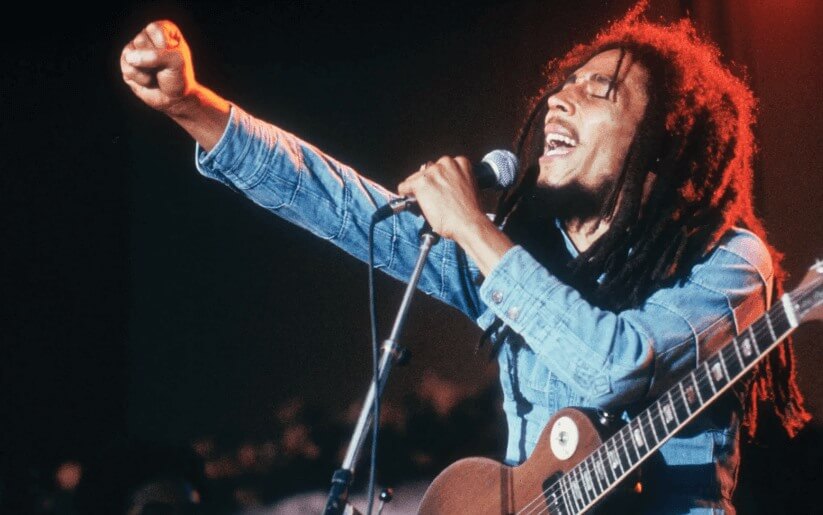Exodus was still in the UK chart when its follow-up Kaya was released on March 23, 1978. This was a testament not only to Bob Marley’s remarkable appeal at this point but additionally to the man’s outstanding job principles and also his ability to shake off a worsening health issue.
A deadly disease
The toe injury which had forced Marley to cancel shows in 1977 was identified as Acral Melanoma, a malignant skin cancer. Doctors in both London, as well as Miami, suggested he have his big toe truncated to prevent cancer cells from spreading, yet Marley was reluctant to go through an operation that, unlike the principle of Rastafarianism, required “reducing the flesh.” Ultimately, in July 1977, he went through a difficult medical treatment in Miami, had the cancerous tissue on the toe get rid of, and the afflicted area covered with a skin graft taken from his upper leg. While the suggested amputation may have conserved his life, this concession measure would certainly verify sadly inefficient in stopping the progress of the disease in the long term.
A political homecoming
On April 22, 1978, a month before the beginning of the Kaya world tour, Marley, as well as the Wailers, pulled off a gig of special historic and political resonance when they headlined the One Love Peace Concert at the National Stadium in Kingston. The program marked the very first time that Marley entered Jamaica since the Wailers’ efficiency at the Smile Jamaica show, 2 days after he had narrowly left being fired deadly in December 1976. The band’s return to its homeland was hardly any less difficult given that the performance had been arranged, in huge part, to pacify a bitter political fight between individuals’ National Party led by Michael Manley and also the Jamaican Labour Party led by Edward Seaga, which had spilled out of the legislative assembly as well as on to the streets.
The determining factor in persuading Marley to return to his homeland was a visit, to London, from Manley as well as Seaga, both convinced Marley that the scenario back home had greatly boosted. Guaranteeing that this would certainly end up being a public declaration, at the climax of the show, throughout an efficiency of “Jamming,” Marley brought both politicians on phase and also joined their hands together in a symbolic motion of forgiveness and also fraternity. It was an enduring and idealistic gesture that pacified stress, albeit just briefly (the two organizers of the festival, that were each affiliated to the rival intrigues, were both killed within 2 years).
Peace Medal Acceptance Speech
Marley’s value as several ideas for the poor and also dispossessed peoples of the world had now outgrown all percentages to his standing as a popular music performer. On June 15, two months after the One Love Peace Concert, he was presented with the Peace Medal of The Third World at the UN General Assembly in New York City. The recognition was presented to him by the Senegalese Youth Ambassador, Mohmmadu “Johnny” Seka, in formal acknowledgment of Marley’s courageous work in appealing for justice as well as peace during a time of political discontent in Jamaica.
However, it was clear that the vocal singing star had become a figurehead and de facto spokesman for countless powerless men and women far beyond his Jamaican native home. This was particularly so in Africa, which Marley saw for the very first time towards the end of 1978 when he traveled to Kenya and also Ethiopia, the spiritual home of the Rastafari.
The story behind Kaya album
Kaya, like Exodus before it, was videotaped in London, during Marley’s duration of “expatriation” from Jamaica, and is typically described as a sister cd to Exodus. Yet both collections could barely have offered more of a comparison in tone. After the apocalyptic visions as well as the magnificent peaks of Exodus, the music environment of Kaya reflected an extra peaceful as well as harmonious frame of mind. “Kaya” is Jamaican street slang for “dope” and an airy state of mind of gently-stoned generosity radiated from the cd’s grooves, a vibe underlined by the image of a ganja plant that beautified the back-cover artwork.
Kaya is a meaning of protest police authority
While in London, Marley was apprehended and charged with property of marijuana. He showed up at Marylebone Magistrates Court on June 4, 1977, where he was found guilty and also fined ₤ 50. (Later that evening he did a raving, take-no-prisoners real-time program that is available as Live at the Rainbow.) Kaya was an eloquent riposte to the UK law enforcement agencies, whose assents had not inhibited Marley from smoking the weed, a habit preserved in his Rastafarian confidence. “Excuse me while I light my spliff/Good God I obtained ta take a lift,” he sang on the opening track “Easy Skanking,” a tune as loosened up as its title suggested. The album’s title track “Kaya” was a new recording of a likewise chilled old track, in which Marley cheerfully declared himself “So high, I even touch the sky.”
Kaya came to be Marley’s highest-charting non-compilation cd in the UK, where it came to a head at No. 4. Some critics at the time suggested that Marley had in some method sold out his hardcore political beliefs to generate an album of softer emotional tones, tailored for the mainstream market.
